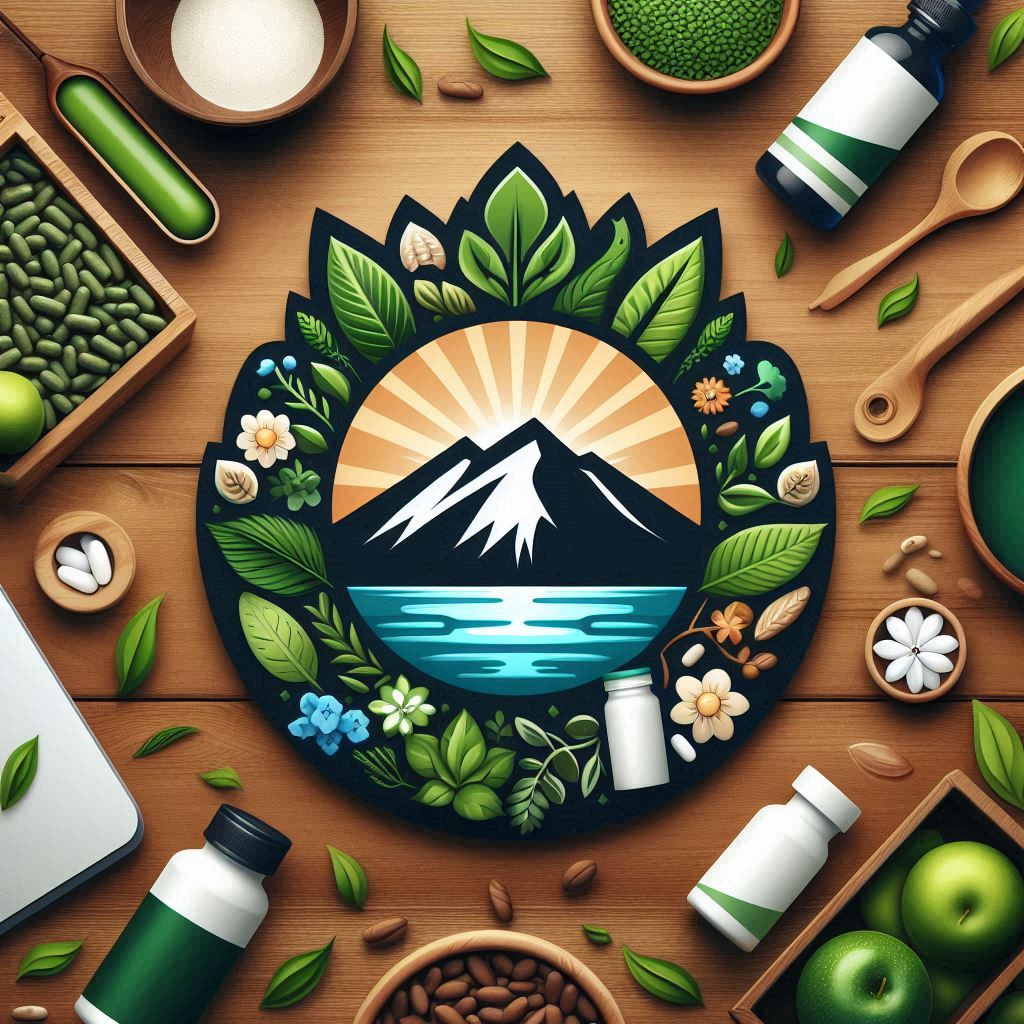Herbal supplements have a long history in mental wellness, popping up in traditional remedies and gaining fans in today’s world. I’ve seen interest in natural approaches to stress, mood, and emotional balance just keep growing, and honestly, it’s pretty easy to see why. People want more natural options to support mental health, whether they’re looking for extra help alongside therapy or exploring new paths for self-care.
My goal here is to break down how herbal supplements can play a part in mental wellness, give you some background on commonly used herbs, explain benefits and safety details, and offer a look at what the science really says. If you’re curious about integrating herbal supplements into your mental wellness routine, knowing what to expect, possible risks, and how they fit into the bigger picture is really important.
Topic: The Role Of Herbal Supplements In Mental Wellness
Approach: A practical, accessible, and experience-based look at the topic, including science, practical advice, and safety tips.
Word Count: Targeting around 4500+ words for a deep jump into.
Here’s everything you need to know about herbal supplements and mental wellness. Let’s get into it.
What Are Herbal Supplements and Why Do People Use Them?
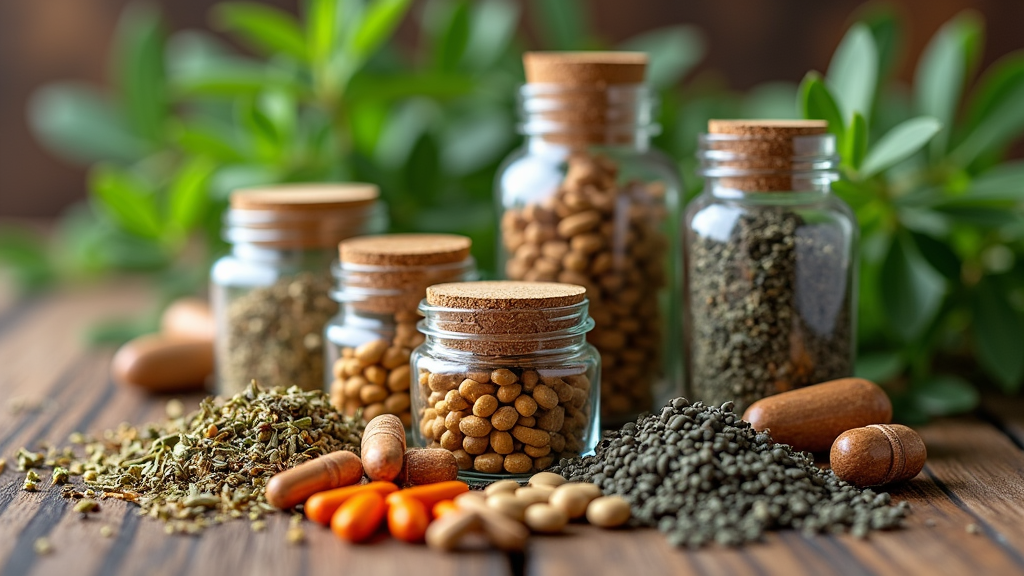
Herbal supplements are natural products made from plants, usually the roots, leaves, seeds, flowers, or bark. Most supplements come in capsules, tinctures, powders, or teas. These have been around for ages in Ayurveda, Traditional Chinese Medicine, and a bunch of other folk traditions. But in the last few decades, it feels like there’s been a real resurgence, with natural health stores carrying entire aisles of herbal remedies.
The big draw? People are hoping to manage stress, improve mood, get better sleep, or boost their focus, all without the potential side effects of prescription meds. For some, it’s about having more options. Others want to avoid pharmaceuticals altogether. I know people who reach for herbal supplements to take the edge off of day-to-day stress or as part of their self-care toolkit.
It’s important to know up front: herbal doesn’t automatically mean safe or effective for everyone. The quality, strength, and action of supplements can really vary from brand to brand.
The Potential Benefits of Herbal Supplements for Mental Wellness
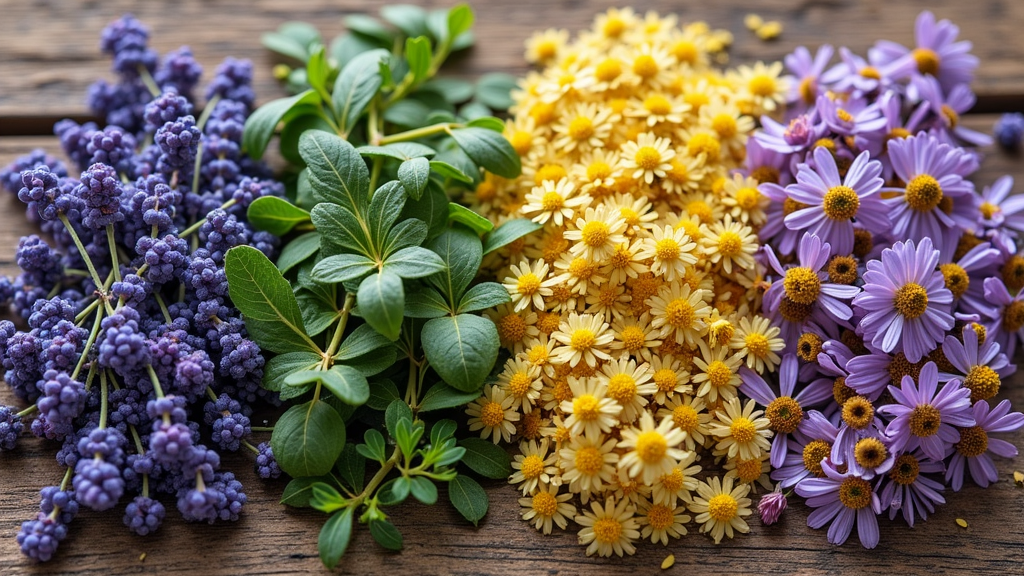
I’ve noticed that most herbal supplements for mental health tend to focus on a handful of big goals. Here’s what people (and research) say herbs might help with:
- Reducing feelings of anxiety or stress
- Lifting low mood or supporting emotional balance
- Improving sleep quality or easing insomnia
- Enhancing cognitive clarity, focus, or memory
- Balancing response to stress (think: hormones like cortisol)
Some herbs target the nervous system directly, influencing neurotransmitters like serotonin, dopamine, or GABA. Others act as adaptogens, a term you’ll hear a lot, which basically means they help your body cope more smoothly with stress. A few have strong antiinflammatory or antioxidant properties, which is getting more attention as we learn about the inflammation–mental health connection.
I’m not saying these supplements are a cure-all for things like depression or anxiety, but many people do report benefits for mild to moderate symptoms. The science is mixed, though, and everyone’s response is a little different—what works wonders for one person might do nothing for someone else.
Commonly Used Herbal Supplements for Mental Health
There are hundreds of herbs in use all over the world, but a handful show up most often, both in research and daily life. I’ve used some of these myself, chatted with folks who swear by them, and read loads of research to bring you a rundown of the big players.
St. John’s Wort (Hypericum perforatum)
What is it used for? St. John’s Wort is probably the most famous herbal supplement for mood and mental health, especially for mild to moderate depression.
How does it work? Scientists think it helps boost levels of serotonin, dopamine, and norepinephrine, brain chemicals linked to mood.
Points to keep in mind: St. John’s Wort can interact with a ton of prescription medications, including antidepressants, birth control pills, blood thinners, and more. I strongly recommend checking with a healthcare provider before trying this one.
Ashwagandha (Withania somnifera)
What is it used for? Ashwagandha is an ancient Ayurvedic herb, used for stress relief, reducing anxiety, easing fatigue, and building overall resilience.
How does it work? This plant is a classic adaptogen. Researchers believe it helps balance cortisol (your main stress hormone) and supports the nervous system.
Evidence: I’ve seen some solid studies showing that ashwagandha can improve sleep and reduce anxiety, especially with regular use over several weeks.
Rhodiola Rosea
What is it used for? Rhodiola is all about boosting energy, focus, endurance, and combating occasional stress and fatigue. Some use it to support mood or mild depression.
How does it work? It’s another adaptogen. The main idea is that it enhances your body’s ability to respond to physical and mental stress, and possibly boosts certain neurotransmitters.
Evidence: There are positive results for stress and mental performance, but studies are on the smaller side and more are needed.
Valerian Root (Valeriana officinalis)
What is it used for? Valerian is one of the go-tos for sleep problems, with a side benefit of reducing mild anxiety or restlessness.
How does it work? It appears to increase GABA in the brain, a calming neurotransmitter that can help you relax, wind down, and drift off more easily at night.
Side notes: Valerian can cause drowsiness, so I keep it for bedtime only. Not everyone loves the taste or the smell; just being real!
Ginkgo Biloba
What is it used for? Ginkgo’s main claim to fame is supporting cognition, memory, and focus. Some people take it for anxiety, too.
How does it work? It’s thought to help by increasing blood flow to the brain and providing antioxidant support.
Science check: Ginkgo has mixed results in studies on dementia and cognitive decline, but some folks say it helps them stay sharp or less anxious.
Lavender (Lavandula angustifolia)
What is it used for? Lavender is a favorite for calming anxiety, reducing stress, and improving sleep. People use it as a supplement, tea, or essential oil (in aromatherapy).
How does it work? Lavender seems to have a quieting effect on the nervous system, possibly increasing GABA levels in the brain.
Quick tip: I’ve found that even just smelling lavender essential oil is relaxing, especially at bedtime.
Lemon Balm (Melissa officinalis)
What is it used for? Lemon balm is a gentle herb for easing mild anxiety, restlessness, or sleep troubles. It’s been used in teas for centuries.
How does it work? It acts as a mild sedative and may support GABA activity, helping you unwind after a stressful day.
Other Noteworthy Herbs
- Passionflower: Often included for gentle anxiety relief and sleep support.
- Bacopa Monnieri: Used for cognitive function, memory, and as a traditional “brain tonic.”
- Chamomile: Well known in tea form to help with relaxation and stress, especially in the evening.
- Holy Basil (Tulsi): Another adaptogen, kicking in for stress support and a sense of emotional balance.
How Herbal Supplements Work: Adaptogens, Nervines, and More
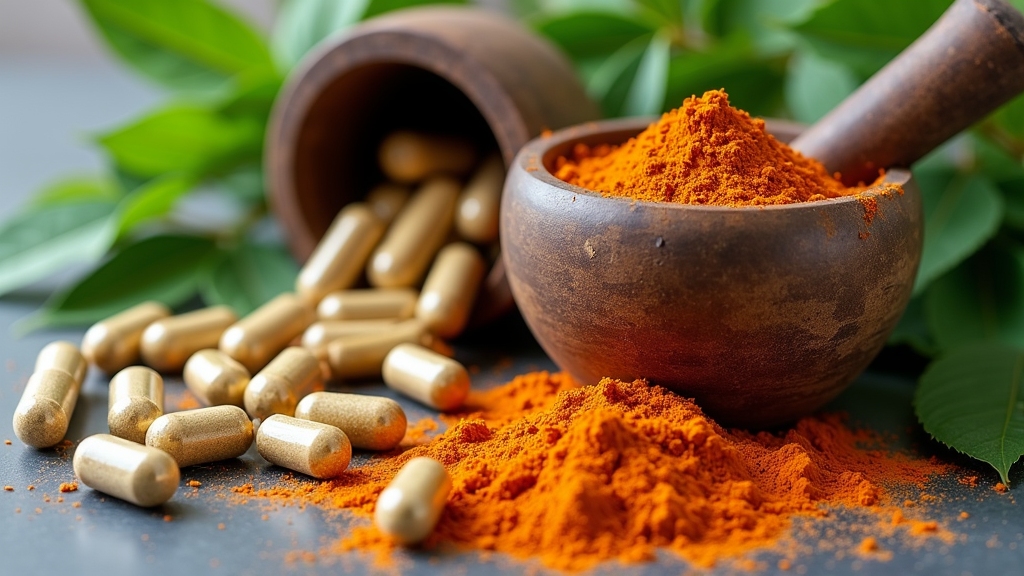
The science behind herbs is fascinating and sometimes a little complicated. Most of the mental wellness herbs fall into a couple of main categories:
- Adaptogens: These herbs (like ashwagandha, rhodiola, and holy basil) help your body stay balanced during mental and physical stress. They support adrenal health and can balance how you feel as life throws you curveballs.
- Nervines: These include calming herbs like valerian, passionflower, and lemon balm. They soothe the nervous system, often by influencing GABA or acting as mild sedatives.
- “Brain Boosters”: Think ginkgo or bacopa—herbs that may improve focus, clarity, or memory, often through antioxidants or increased cerebral blood flow.
Most herbalists suggest that herbs work best as part of a wider strategy: sleep hygiene, good nutrition, exercise, and stress management all matter. Some folks really notice a difference with daily use; others use them occasionally on tough days. Understanding these categories can help you match the herb with your specific mental wellness goal.
What to Know About Quality, Dosage, and Forms
The natural supplement industry is huge, but it isn’t regulated in the same way as prescription drugs in many countries. That means you’ll find big differences in ingredient quality, strength, purity, and even what’s listed on the label.
- Whole herbs vs. extracts: Some supplements use dried and ground whole parts of the plant, while others use concentrated extracts (which can be much stronger).
- Dosing: Recommendations vary for each herb, and “more” isn’t always better. It’s smart to start low, see how you feel, and use the smallest effective dose.
- Forms: Capsules and tablets are popular, but tinctures, teas, and powders are also really common, and sometimes the form will affect how well or how quickly you notice results.
I always look for products that have been tested by a third party for quality (seals from organizations like NSF or USP are useful). Every herb has its own “sweet spot,” dosage ranges that work best, based on existing research and real-world experience. And don’t forget, how you store your supplements can keep them fresh longer; a cool, dry place usually works best.
Safety and Risks of Herbal Supplements for Mental Wellness
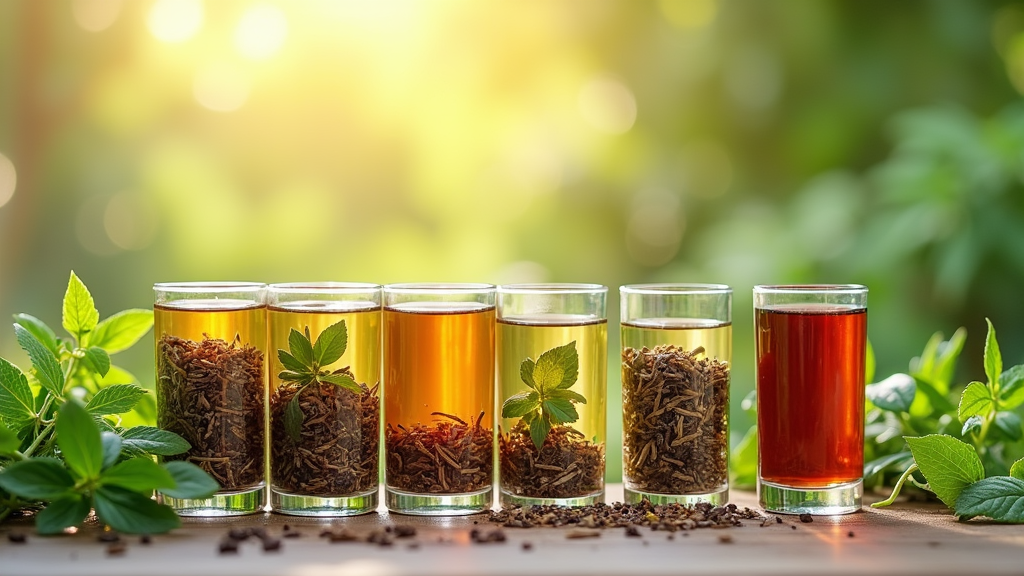
I want to be absolutely clear: “natural” isn’t the same as “risk free.” Here’s what I keep in mind and share with anyone new to herbs for mental wellness:
- Drug interactions: St. John’s Wort is the most famous for this, but other herbs can affect medications for depression, anxiety, blood pressure, blood clotting, thyroid, and more.
- Side effects: Most herbs are well tolerated, but you could run into tummy issues, drowsiness, headaches, allergic reactions, or weird dreams (valerian, I see you).
- Pregnancy and breastfeeding: Safety data is often missing, so it’s generally advised to avoid herbs in these situations unless you have expert guidance.
- Pre-existing conditions: Some herbs can affect things like blood sugar, blood pressure, liver function, or hormone levels; always consider your health history.
- Kids and older adults: Extra caution is needed, as little bodies (and aging bodies) process herbs differently.
Chatting with a healthcare provider who’s informed about herbal supplements is really important, especially if you’re already on medication or managing a health condition. I also recommend keeping notes on what you try, the dose, and how you feel. Tracking changes can help you and your provider spot patterns or issues and ensure you’re on the safest path.
The Science: What Do We Really Know About Herbs for Mental Wellness?
The search for solid answers in herbal medicine is ongoing. Some herbs have tons of studies, some have only a few. Here’s a snapshot of the research scene:
- Mixed results: For many herbs, study results range from promising to inconclusive, especially around mood and cognitive function.
- The placebo effect: Mental health studies in particular often have high placebo response rates, which makes results harder to make sense of.
- Dosage and form: Many studies use specific standardized extracts or doses that you might not find in over-the-counter products.
- Standardization: Even two bottles of the same herb can have different strengths, which confuses researchers and buyers alike.
- Population studied: A lot of research is done in adults; teens, kids, and older adults might have different reactions.

That doesn’t mean herbs are useless, but it does mean results aren’t guaranteed. A supplement that helps one person’s stress or mild anxiety may not work at all for someone else. Taking notes, being patient, and approaching herbs as part of a bigger wellness plan helps keep expectations realistic. Science is catching up, but for now, personal experience and careful tracking can go a long way.
Integrative and Holistic Approaches: Herbs as One Piece of the Puzzle
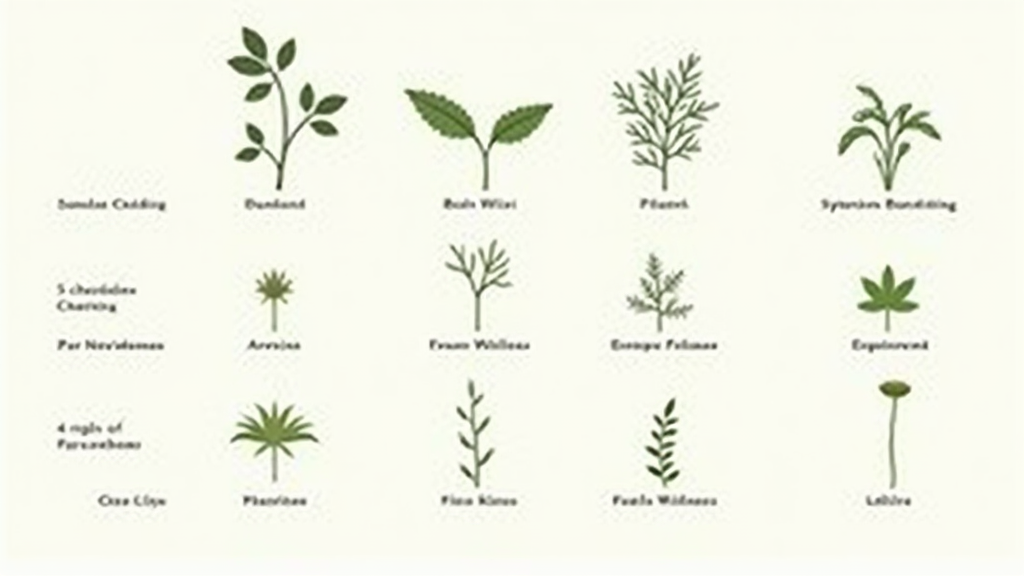
I’ve learned that the best results usually come when herbal supplements are paired with other healthy habits. Mental wellness isn’t a one stop shop. You need plenty of sleep, a decent diet, movement, social support, purpose, and, when needed, psychotherapy or medication.
- Therapy: Cognitive behavioral therapy (CBT), mindfulness, and talking to a mental health pro are all great options, and can work alongside (not instead of) herbal support.
- Nutrition: A balanced, nutrientdense diet helps build a solid foundation for brain health and emotional balance.
- Exercise: Movement is powerful; regular exercise boosts endorphins and can ease stress and anxiety.
- Sleep routines: Herbs like valerian, lemon balm, and chamomile are handy, but so are routines around sleep (dim lights, screen breaks, meditation, etc.).
- Stress management: Yoga, breathing techniques, time outdoors, and spending time on hobbies you actually enjoy make a difference.
Sometimes people use an herbal supplement to get temporary relief while building those other habits, or alongside traditional medicine under the watch of a healthcare provider. It’s helpful to see the big picture instead of focusing only on what’s in the pill bottle. Balancing herbs with modern self-care can really give you the best of both worlds.
My Personal Experience with Herbal Supplements for Mental Wellness
I’ve tested a handful of herbal supplements myself, sometimes out of curiosity, sometimes because stress or sleep wasn’t going great. I want to share a bit of what I’ve noticed, with the reminder that one person’s experience isn’t gospel for everyone.
- Ashwagandha: For me, taking ashwagandha daily at a moderate dose brought a subtle but noticeable improvement in how I handled stress. I felt a little more grounded, and my sleep improved (especially falling asleep faster). When I stopped taking it, I did notice my stress response changed a bit. Nothing dramatic, but it’s something I keep in my back pocket now.
- Lemon Balm and Chamomile Tea: When I need to chill out at night, a tea blend with these herbs absolutely helps me unwind. Sometimes I add a bit of valerian for extra sleep support, but I keep the dose small so I don’t feel groggy in the morning.
- Lavender Oil: Diffusing lavender essential oil at bedtime makes my room feel extra cozy and calming. It might not be magic, but the ritual itself is a nice signal that it’s time to relax.
- Rhodiola: On days when I’m dragging, a rhodiola capsule has given me a gentle pick-me-up. It can be a little energizing, so I avoid it after lunch.
- St. John’s Wort: I haven’t tried it myself because I don’t want to risk medication interactions. I know people who have, and some report improved mood, but others see no change. Talking to a healthcare pro is nonnegotiable with this one.
For most herbs, effects are subtle and build up over weeks rather than changing how you feel overnight. Being patient and consistent pays off, and tracking how you feel in a journal can be super useful. Trying different herbs when needed, and keeping the approach flexible, has really helped me figure out what works best for me.
Who Might Benefit Most from Herbal Supplements?
I’ve seen herbal supplements make the biggest difference for people who:
- Have mild to moderate mood or stress issues and want some extra support
- Prefer natural or plantbased approaches
- Aren’t able or ready to take pharmaceuticals (with their provider’s input)
- Want something to layer into a broader self-care plan (with therapy, better sleep, etc.)
- Need help sleeping and want to avoid traditional sleep aids
It’s really important, though, that anyone with severe depression, suicidal thoughts, intense anxiety, or mental health issues that interfere with daily life reach out to a professional. Herbs are great for maintenance or mild symptoms, but they’re not a stand-in for professional mental health care.
Who Should Be Cautious with Herbal Supplements?
- Anyone taking prescription medications (especially antidepressants, blood thinners, antiseizure drugs, heart meds, birth control, or thyroid meds)
- People who are pregnant, breastfeeding, or planning a pregnancy
- Children, unless under expert supervision
- Older adults, as sensitivities and interactions can increase
- Anyone with a history of allergies or sensitivities to herbs or plants
- People managing serious medical conditions (liver disease, kidney issues, heart problems, autoimmune issues, etc.)
If you’re in one of these groups, working with a provider who really understands both conventional medicine and herbal supplements is a smart move. Your safety comes first.
Guidelines for Choosing and Using Herbal Supplements Safely
Shopping for herbal supplements can feel overwhelming, whether online or in your local health food store. Here’s the approach I take and what I recommend for anyone new to this world:
- Stick with brands that have third-party quality testing (look for seals from organizations like USP, NSF, or ConsumerLab).
- Check for certifications: organic, nonGMO, and fair trade labels may add another layer of trust, but third-party testing is more important.
- Start with a single herb at a time, at the lowest effective dose. Only adjust if needed, giving your body time to respond.
- Track your reactions in a journal, noting mood, sleep, anxiety, side effects, and other changes. Patterns matter and really help you make sense of what’s working.
- Avoid mixing lots of herbs all at once, since it’s harder to tell what’s actually working (or not working).
- Read ingredient lists carefully, especially if you have food allergies or sensitivities.
- Store herbs away from heat, light, and moisture to protect potency and freshness.
- If you feel worse or notice new symptoms, stop the supplement and let your provider know.
Talking to Your Healthcare Provider
It’s worth looping in your doctor, psychiatrist, or an experienced herbalist—especially if you’re already on medication or managing health conditions. Bring along supplement bottles or snapshots of the ingredient lists, and be honest about what you’re hoping to improve. Open communication goes a long way in preventing issues and helping you get the best results. Don’t be afraid to ask questions, either. Professionals are there to help you.
Frequently Asked Questions About Herbal Supplements and Mental Health
I get a lot of questions about this topic. Here are some that pop up often, along with clear answers:
1. Are herbal supplements safe for long-term use?
Some herbs, like ashwagandha and lemon balm, have a long safety record for daily use over extended periods. Others, like valerian or kava, are meant for short-term support because of their strength or potential for tolerance. For long-term use, it’s best to check in regularly with a knowledgeable provider and pay attention to changes in how you feel. Monitoring is key for safety.
2. Can I use herbal supplements alongside prescription medications?
Some combos are okay, but many herbs interact with medications, especially St. John’s Wort (which can decrease effectiveness of many drugs). Always run your supplement list by your doctor or pharmacist before starting anything new. If you’re not sure, play it safe and ask first.
3. How quickly will I feel results from herbal supplements?
It depends on the herb, the dose, and your personal biology. Calming teas (like lemon balm or chamomile) can work within an hour, while adaptogens like ashwagandha or rhodiola may take 2–6 weeks for noticeable benefits. Consistency and patience are key, so give your body time to respond.
4. Do herbs “fix” mental health issues?
Herbs can support mood, stress resilience, or sleep, but they are rarely a standalone solution. Think of them as sidekicks rather than superheroes. Therapy, a solid sleep routine, good nutrition, and movement matter every bit as much (if not more). Herbs work best as a support tool alongside other healthy habits.
5. Are there risks with combining multiple herbs?
Yes, especially if you mix supplements without knowing which ones interact or how strong each one is. It’s better to introduce one herb at a time and stick to reputable products, checking for known interactions before combining them. If you’re unsure, talk it over with a professional who knows herbs inside out.
Trying herbal supplements for mental wellness is a personal adventure. What works for one person might not work for another. Here are some down-to-earth tips to help you start off:
- Decide what you’d like help with: stress, sleep, mood, or focus. Keep it simple at first and focus on your specific goal.
- Choose one herb that matches your goal, and stick with a reputable, third-party tested brand. Aim for quality every time.
- Start with a small dose and give it 2–4 weeks to track how you feel. Patience and consistent use really do pay off.
- Layer herbal support into a bigger plan that covers sleep, nutrition, movement, and community. No supplement can replace the basics.
- If you have health issues, take medications, or just want some reassurance, connect with a healthcare provider who understands both herbs and conventional medicine.
- Herb
- Primary Use
- Benefits
- Mechanism
- Common Forms
- Warnings
- St. John’s Wort
- Mild/moderate depression
- Mood, emotional balance
- Increases serotonin, dopamine
- Capsules, teas
- Strong medication interactions
- Ashwagandha
- Stress, anxiety
- Reduces cortisol, sleep
- Adaptogen, stress balance
- Capsules, powders
- Check for thyroid/blood pressure
- Rhodiola
- Fatigue, focus
- Boosts energy, clarity
- Adaptogen, dopamine support
- Capsules, extracts
- Can feel stimulating
- Valerian
- Sleep support
- Calming, sedative
- Increases GABA
- Capsules, tea
- Short-term use/adult only
- Ginkgo
- Cognitive function
- Memory, brain flow
- Antioxidant, blood flow
- Capsules, tablets
- Not with blood thinners
- Lavender
- Calming, sleep
- Eases tension, rest
- Nervous system effects
- Oil, tea
- Oil not for internal use
It’s never too late to check out plant based options for mental wellness. If you’re thoughtful about quality, safety, and whole-body wellness, herbal supplements can offer an accessible and sometimes surprisingly effective boost to mental wellbeing. If you have questions, don’t hesitate to reach out—I’m always happy to dig into herbs and share what I’ve learned along the way.

